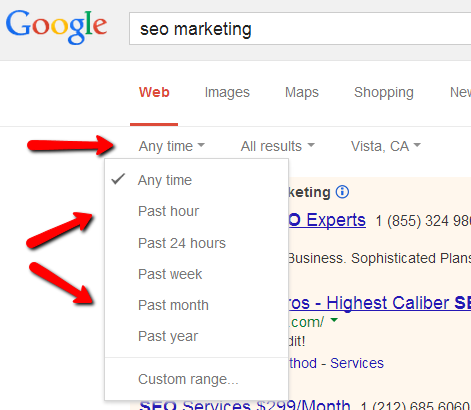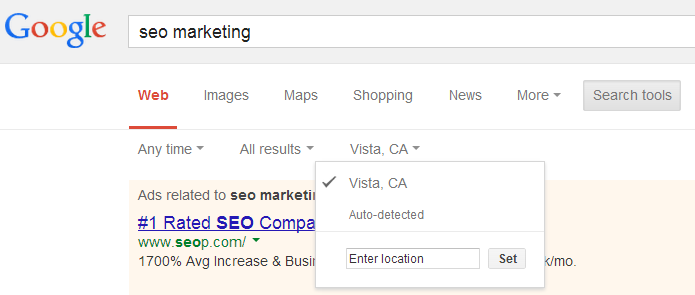For business people and professionals, writing an in-depth article is a great way to be seen as an authority on your subject. But how do you go about finding new and important information?
 Instead of the same top ten search results, there is a better way to get more relevant data. When I was a kid and had to do a report for class, I was always amazed how so many of the students came up with the same basic information. Years later, I realized it was because our parents had all bought us the same encyclopedias. The same goes today. Most people will just do a basic Google search and look for links on the first page. Unfortunately, much of this data is old, outdated, and may be from unreliable sources.
Instead of the same top ten search results, there is a better way to get more relevant data. When I was a kid and had to do a report for class, I was always amazed how so many of the students came up with the same basic information. Years later, I realized it was because our parents had all bought us the same encyclopedias. The same goes today. Most people will just do a basic Google search and look for links on the first page. Unfortunately, much of this data is old, outdated, and may be from unreliable sources.
Here are three tips to help you find the updated and pertinent data you need from Google.
- Find Updated Links. One of the worst things about Google is that it sorts it’s data by popularity. Many times the links that come up on the front page are many years old. So how do you get links that are current? The answer my friend has been staring you in the face and you probably never noticed it. Take a look at the graphic below.

SEO Marketing is a topic that is constantly changing. Data from a year or two years ago will not be accurate for today. Doing a basic search, I get articles like this.
This is the top link that comes up when I type in SEO Marketing and you can see it’s from Sept 2012, a date that’s over a year old. Here’s how you can change it. Click on the “Search Tools” button.
Click on the “Search Tools” button.
Now select the time period you want to search in. For SEO, I’ll start with the “Past Month” selection. I can also select a “custom range” at the bottom.
Here are my new results. The top link is only four days old. Much more accurate. When working on timely information or news items, using the Any Time feature of Google will get you much better listings.
- Get Local Data: Many times when searching Google you need results from your local area. There are two easy ways to do this.

One is to select the “search Tools button again and click on the location drop down. You can type in the city or zip code you want Google to search from.
The other way is to type your search term in the search box, followed by the zip code you want to search in.
The results look like this, with the zip included. - Find Data From Particular Sources. Using the SITE: modifier in Google you can search for results in a particular web site or domain. One of the most popular uses of this is to search popular social media sites. Here is how a query looks.
 Here are what the results look like…
Here are what the results look like…

Overall: You can see from the results above, we have been able to get more timely, local and specific web data with just a few search tweaks. These three advanced search techniques can help you create the best and most accurate in-depth article possible. In a future post, we’ll look at some different advanced queries and see how we can really pin down exact information. Until then… Happy Searching!
